Analyzing Leadership and Management Operations at Starbucks
VerifiedAdded on 2023/06/18
|12
|569
|109
Essay
AI Summary
This essay provides an analysis of leadership and management operations at Starbucks, examining the functions and characteristics of both managers and leaders within the organization. It delves into various leadership and management theories, including transactional and transformational leadership, as well as classical, bureaucratic, and behavioral management theories. The essay concludes that effective leadership involves guiding and directing individuals towards a common goal, shaping their behavior to achieve desired objectives. References to relevant academic sources are included to support the analysis. Desklib provides this assignment solution and many more to aid students in their studies.
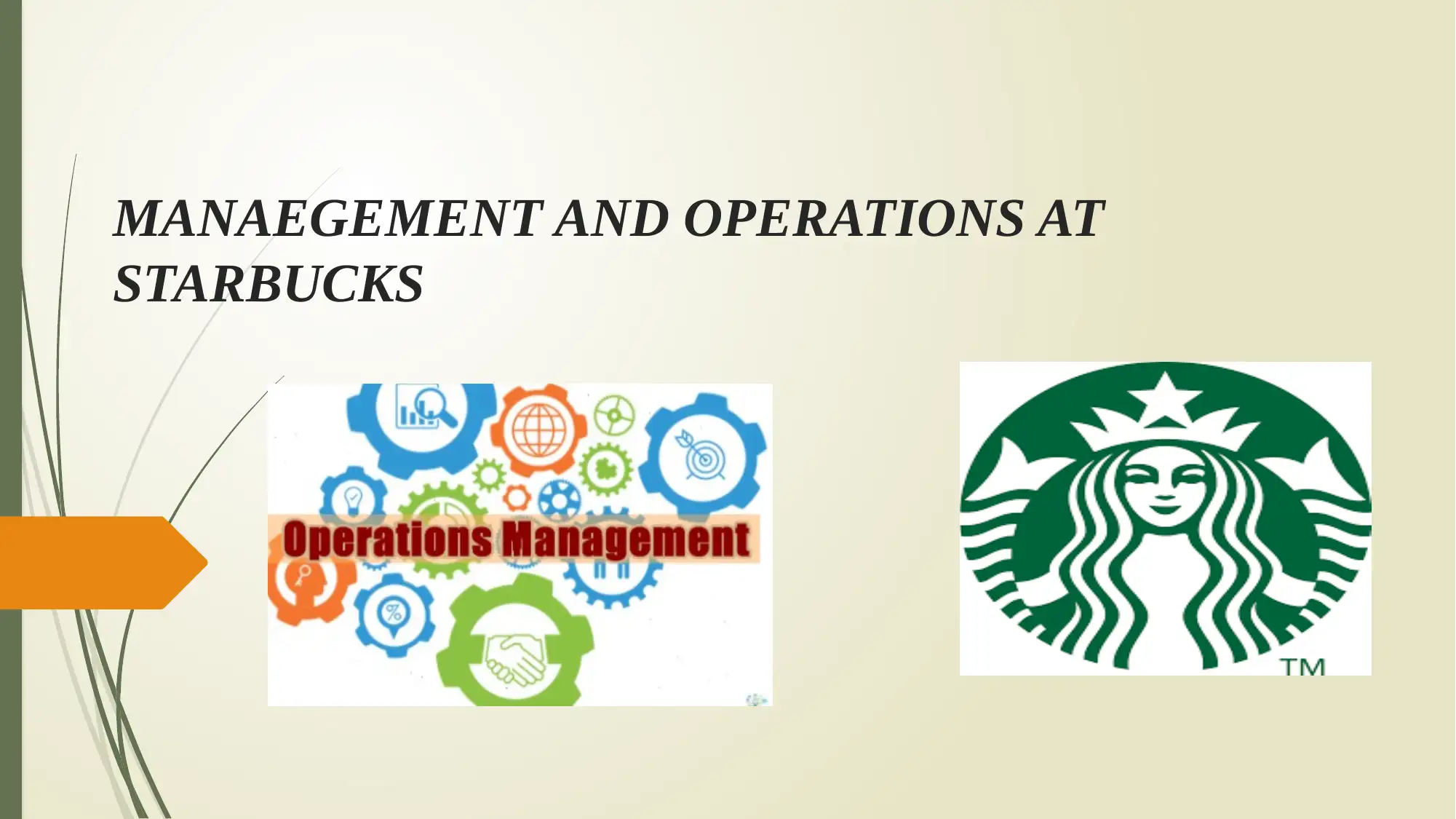
MANAEGEMENT AND OPERATIONS AT
STARBUCKS
STARBUCKS
Paraphrase This Document
Need a fresh take? Get an instant paraphrase of this document with our AI Paraphraser
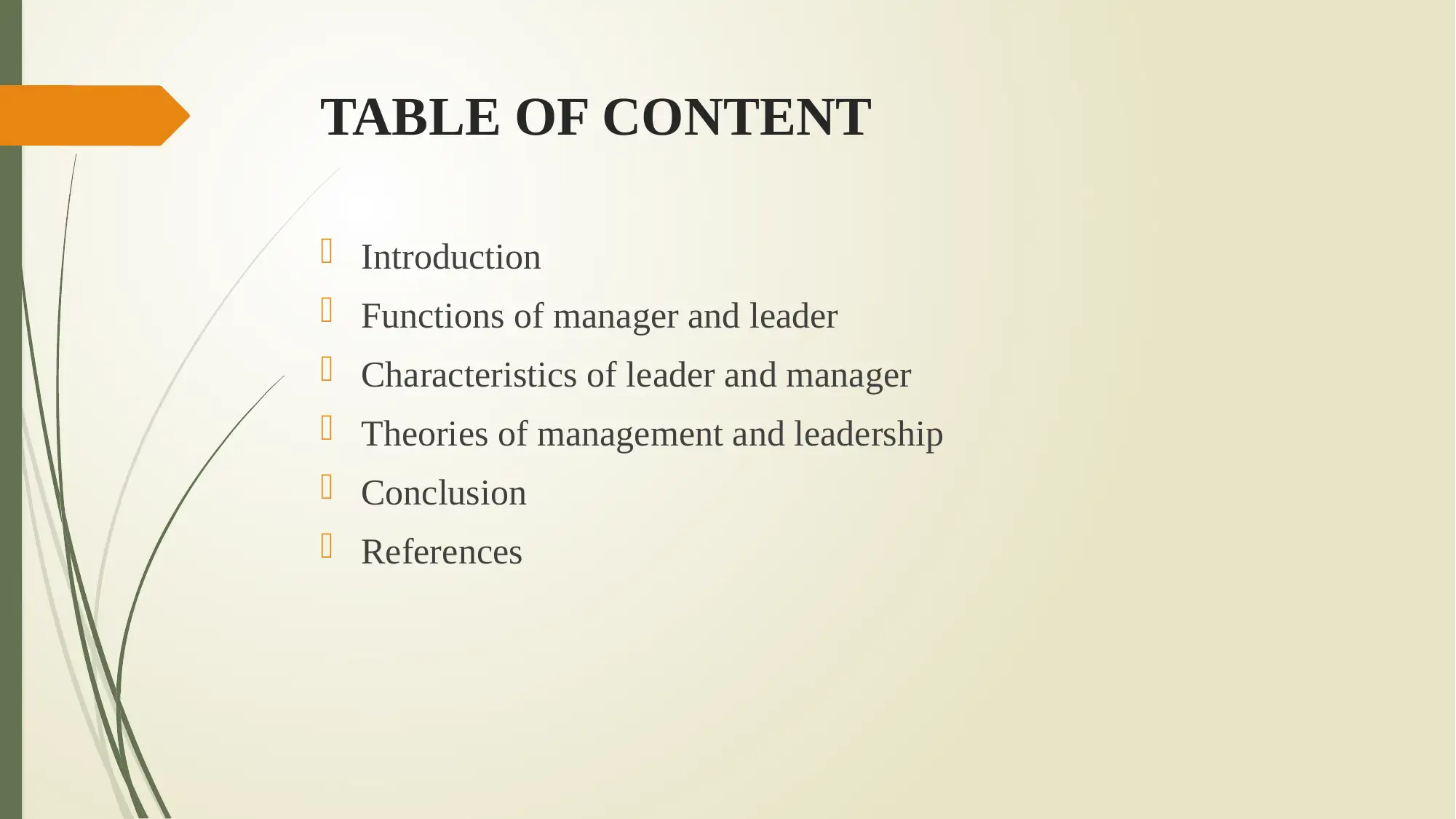
TABLE OF CONTENT
Introduction
Functions of manager and leader
Characteristics of leader and manager
Theories of management and leadership
Conclusion
References
Introduction
Functions of manager and leader
Characteristics of leader and manager
Theories of management and leadership
Conclusion
References
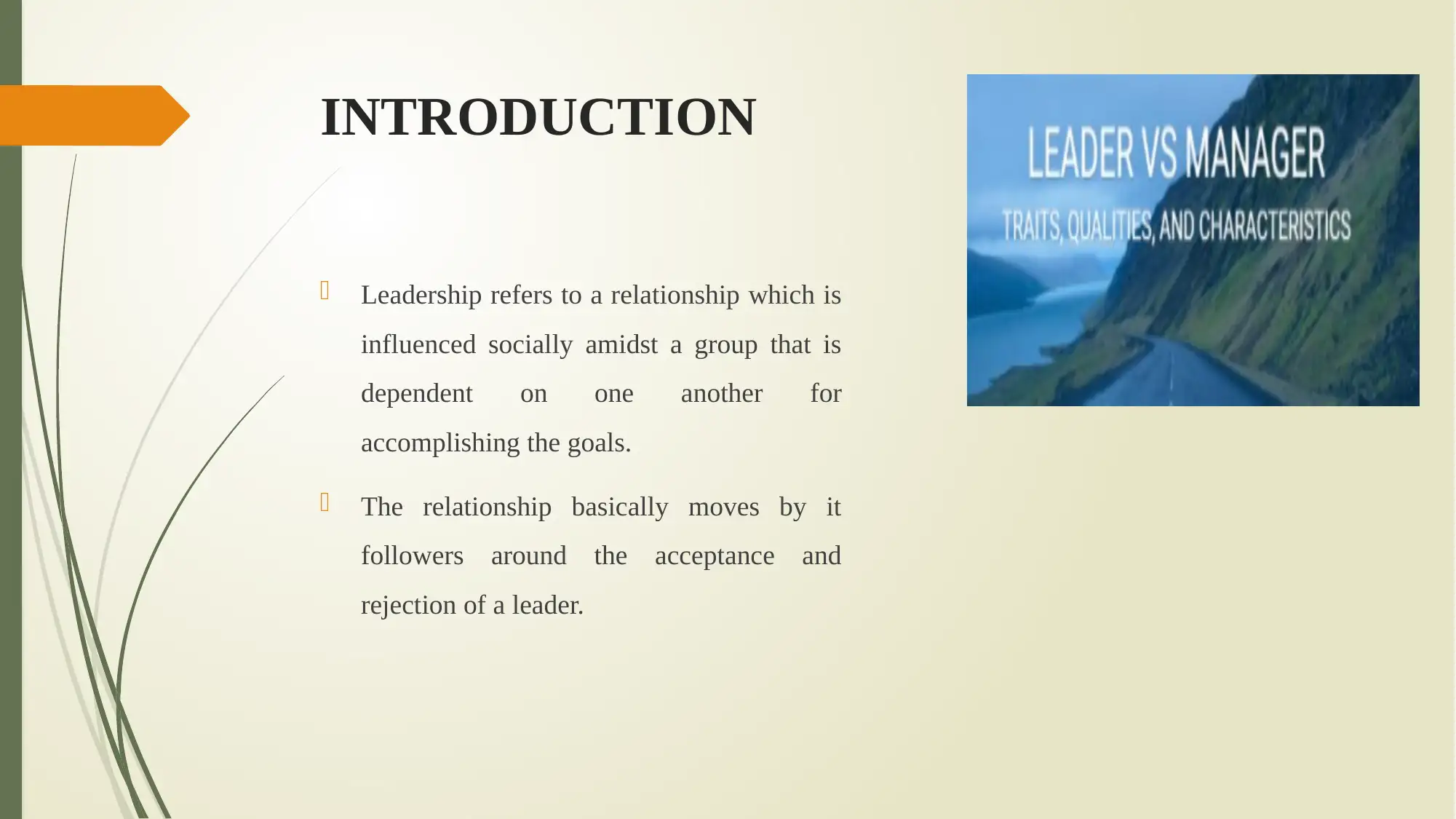
INTRODUCTION
Leadership refers to a relationship which is
influenced socially amidst a group that is
dependent on one another for
accomplishing the goals.
The relationship basically moves by it
followers around the acceptance and
rejection of a leader.
Leadership refers to a relationship which is
influenced socially amidst a group that is
dependent on one another for
accomplishing the goals.
The relationship basically moves by it
followers around the acceptance and
rejection of a leader.
⊘ This is a preview!⊘
Do you want full access?
Subscribe today to unlock all pages.

Trusted by 1+ million students worldwide
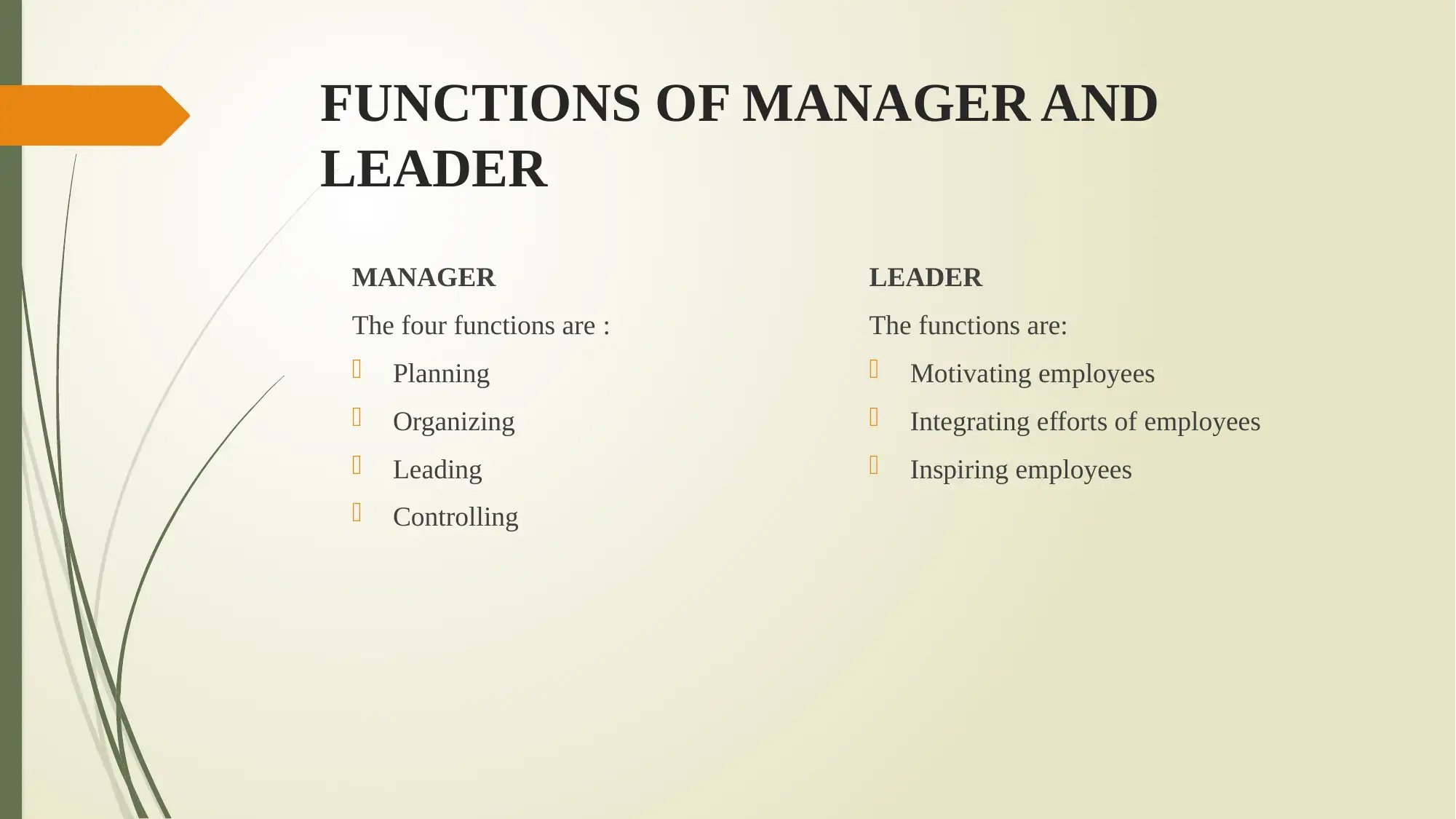
FUNCTIONS OF MANAGER AND
LEADER
MANAGER
The four functions are :
Planning
Organizing
Leading
Controlling
LEADER
The functions are:
Motivating employees
Integrating efforts of employees
Inspiring employees
LEADER
MANAGER
The four functions are :
Planning
Organizing
Leading
Controlling
LEADER
The functions are:
Motivating employees
Integrating efforts of employees
Inspiring employees
Paraphrase This Document
Need a fresh take? Get an instant paraphrase of this document with our AI Paraphraser
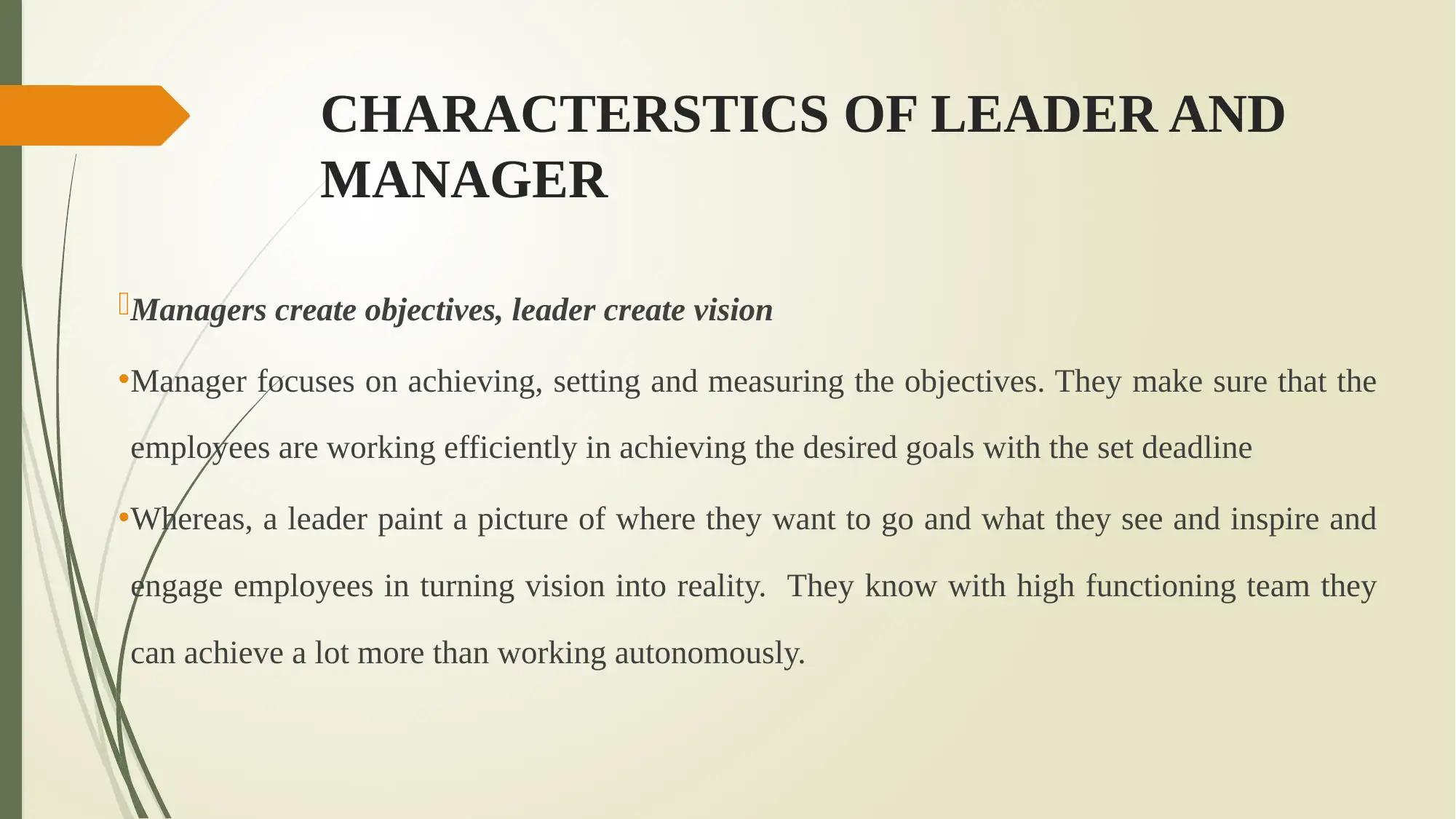
CHARACTERSTICS OF LEADER AND
MANAGER
Managers create objectives, leader create vision
•Manager focuses on achieving, setting and measuring the objectives. They make sure that the
employees are working efficiently in achieving the desired goals with the set deadline
•Whereas, a leader paint a picture of where they want to go and what they see and inspire and
engage employees in turning vision into reality. They know with high functioning team they
can achieve a lot more than working autonomously.
.
MANAGER
Managers create objectives, leader create vision
•Manager focuses on achieving, setting and measuring the objectives. They make sure that the
employees are working efficiently in achieving the desired goals with the set deadline
•Whereas, a leader paint a picture of where they want to go and what they see and inspire and
engage employees in turning vision into reality. They know with high functioning team they
can achieve a lot more than working autonomously.
.
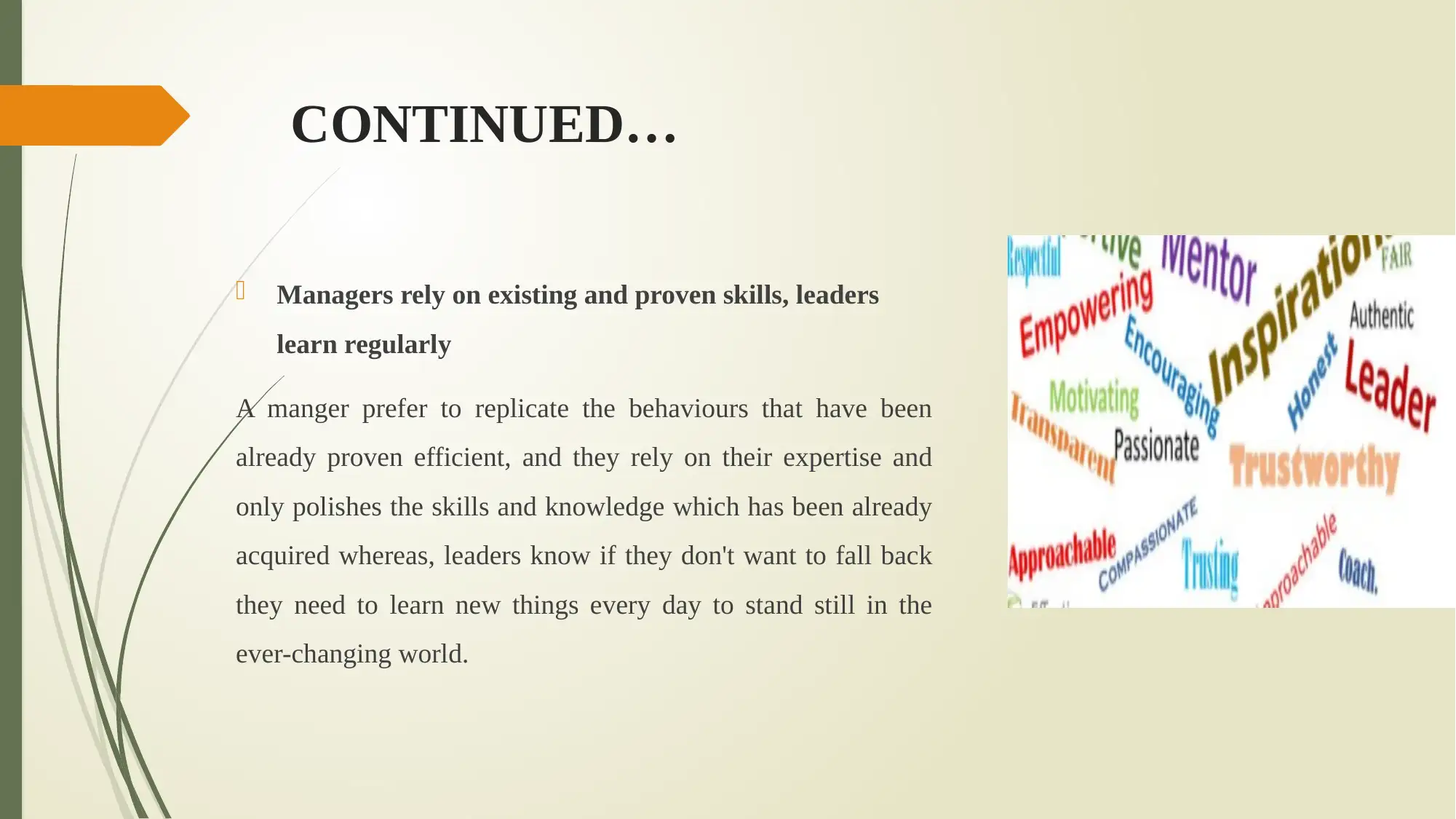
CONTINUED…
Managers rely on existing and proven skills, leaders
learn regularly
A manger prefer to replicate the behaviours that have been
already proven efficient, and they rely on their expertise and
only polishes the skills and knowledge which has been already
acquired whereas, leaders know if they don't want to fall back
they need to learn new things every day to stand still in the
ever-changing world.
Managers rely on existing and proven skills, leaders
learn regularly
A manger prefer to replicate the behaviours that have been
already proven efficient, and they rely on their expertise and
only polishes the skills and knowledge which has been already
acquired whereas, leaders know if they don't want to fall back
they need to learn new things every day to stand still in the
ever-changing world.
⊘ This is a preview!⊘
Do you want full access?
Subscribe today to unlock all pages.

Trusted by 1+ million students worldwide
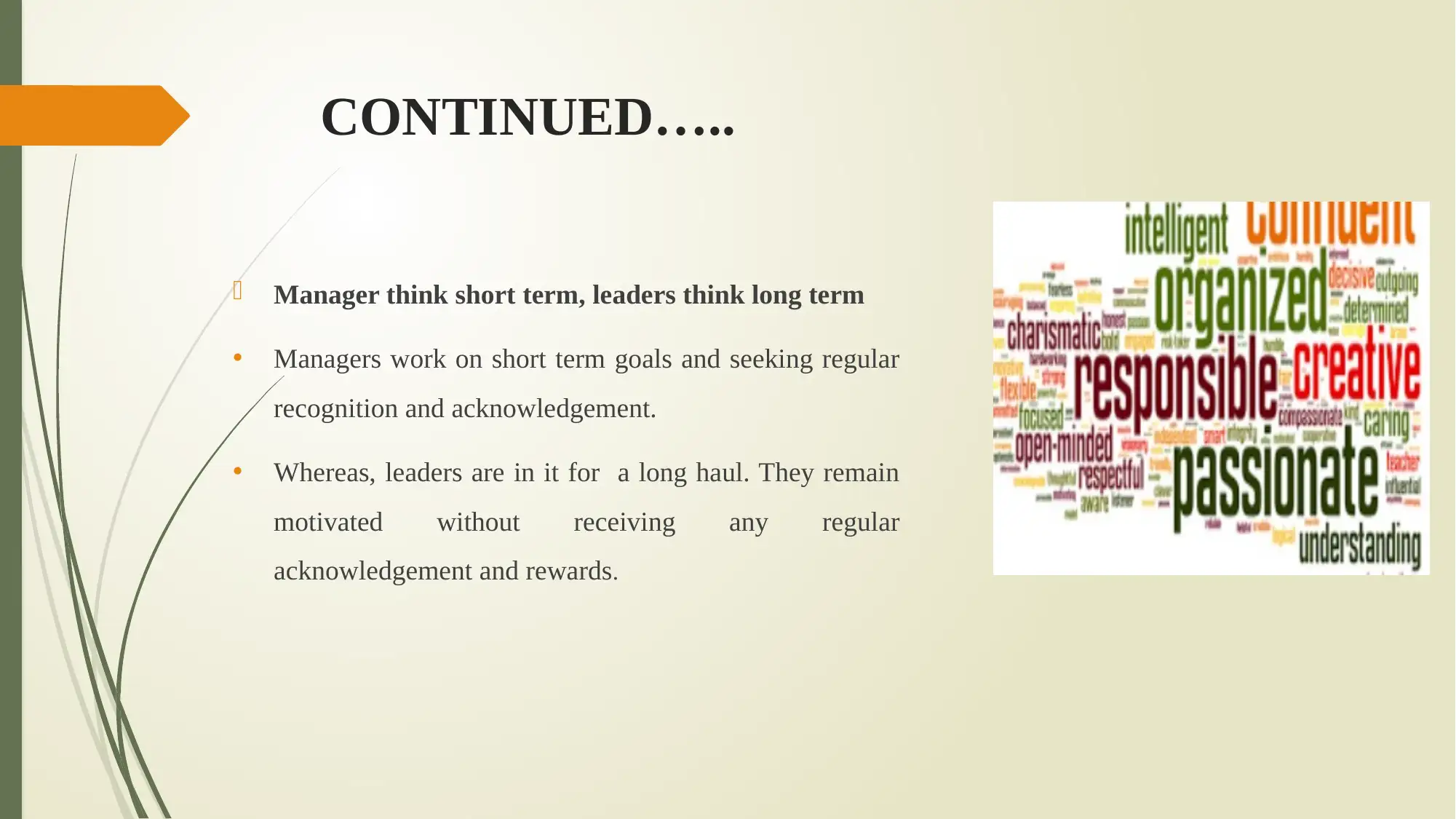
CONTINUED…..
Manager think short term, leaders think long term
• Managers work on short term goals and seeking regular
recognition and acknowledgement.
• Whereas, leaders are in it for a long haul. They remain
motivated without receiving any regular
acknowledgement and rewards.
Manager think short term, leaders think long term
• Managers work on short term goals and seeking regular
recognition and acknowledgement.
• Whereas, leaders are in it for a long haul. They remain
motivated without receiving any regular
acknowledgement and rewards.
Paraphrase This Document
Need a fresh take? Get an instant paraphrase of this document with our AI Paraphraser
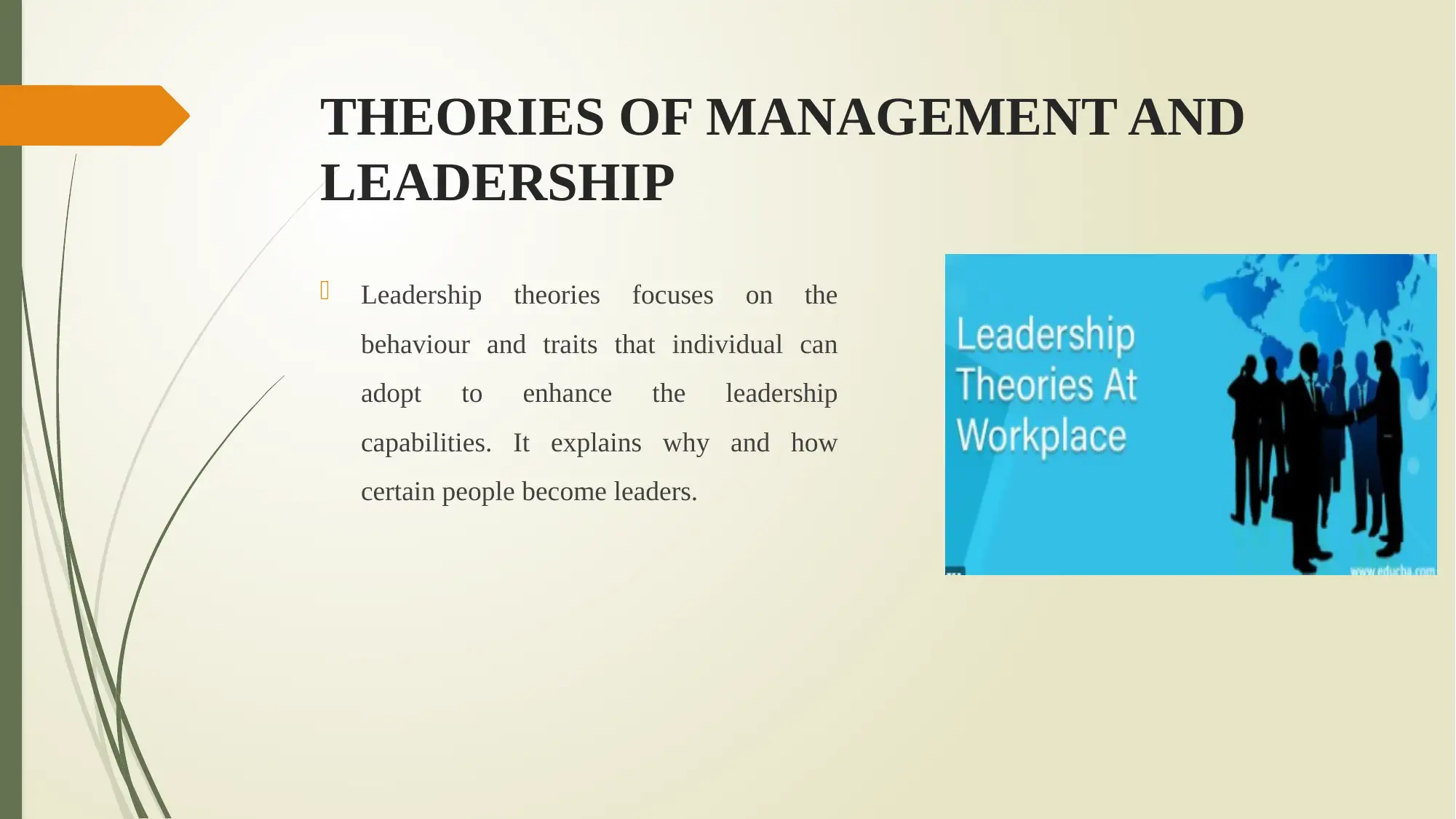
THEORIES OF MANAGEMENT AND
LEADERSHIP
Leadership theories focuses on the
behaviour and traits that individual can
adopt to enhance the leadership
capabilities. It explains why and how
certain people become leaders.
LEADERSHIP
Leadership theories focuses on the
behaviour and traits that individual can
adopt to enhance the leadership
capabilities. It explains why and how
certain people become leaders.
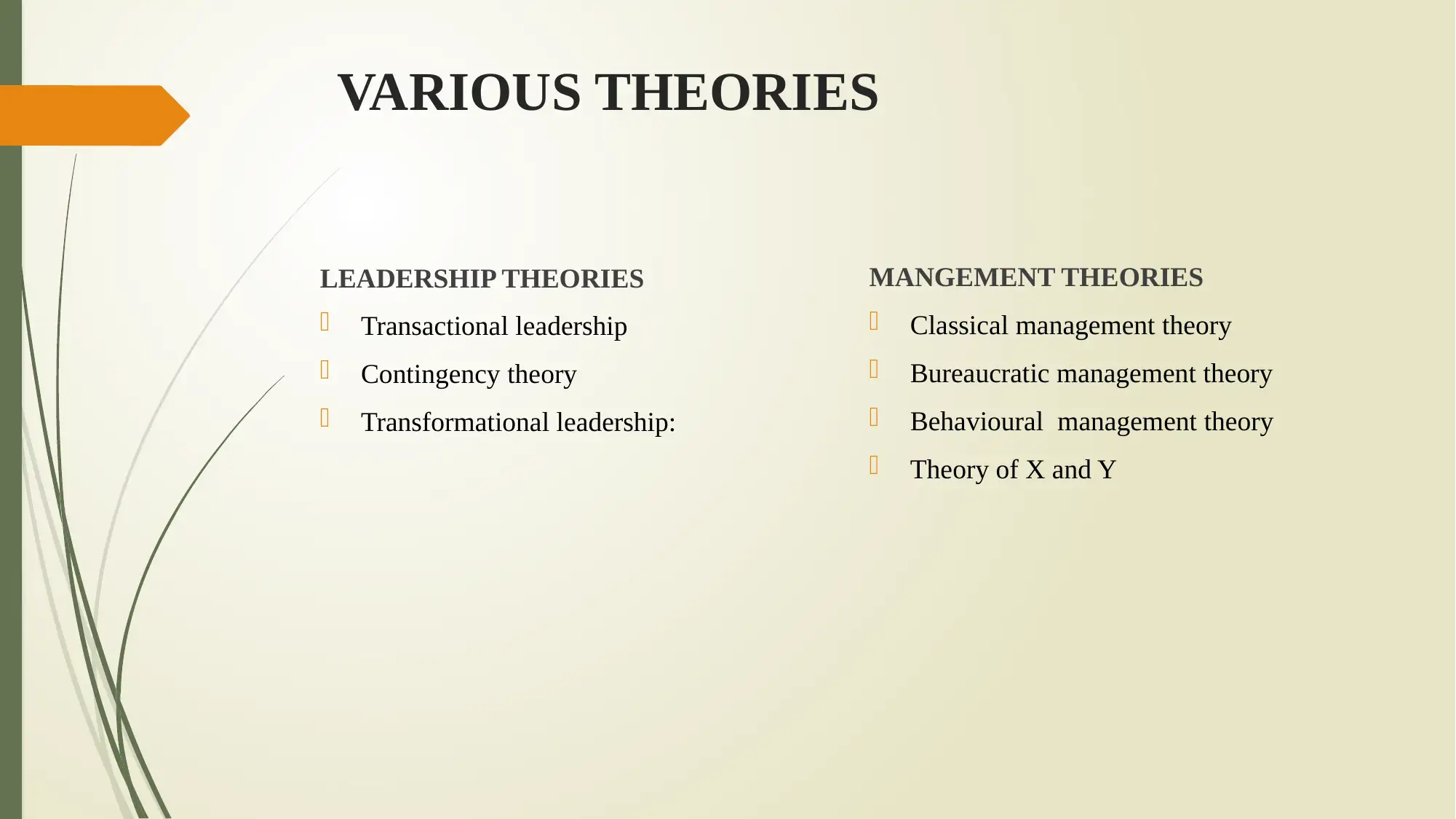
VARIOUS THEORIES
LEADERSHIP THEORIES
Transactional leadership
Contingency theory
Transformational leadership:
MANGEMENT THEORIES
Classical management theory
Bureaucratic management theory
Behavioural management theory
Theory of X and Y
LEADERSHIP THEORIES
Transactional leadership
Contingency theory
Transformational leadership:
MANGEMENT THEORIES
Classical management theory
Bureaucratic management theory
Behavioural management theory
Theory of X and Y
⊘ This is a preview!⊘
Do you want full access?
Subscribe today to unlock all pages.

Trusted by 1+ million students worldwide
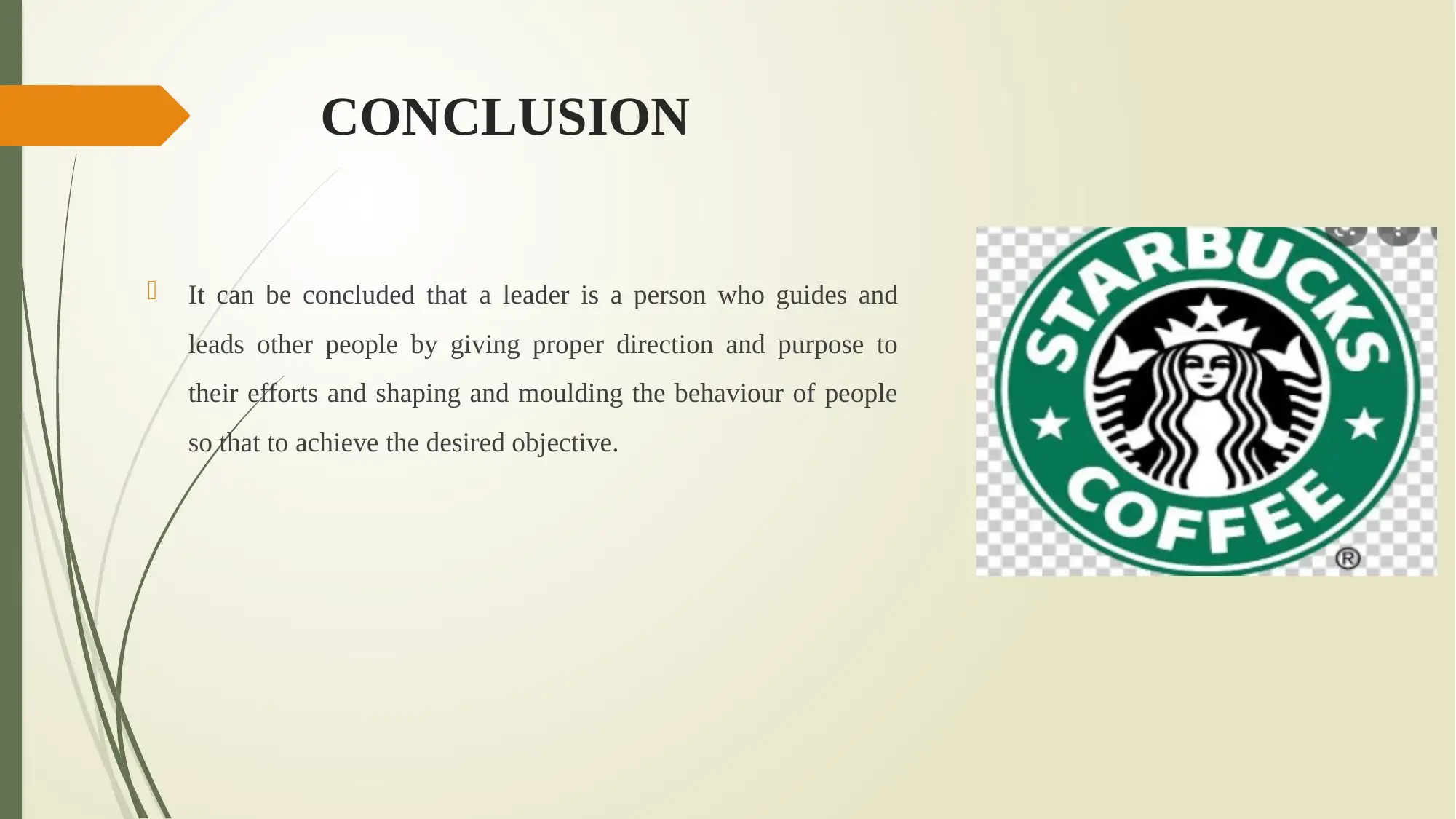
CONCLUSION
It can be concluded that a leader is a person who guides and
leads other people by giving proper direction and purpose to
their efforts and shaping and moulding the behaviour of people
so that to achieve the desired objective.
It can be concluded that a leader is a person who guides and
leads other people by giving proper direction and purpose to
their efforts and shaping and moulding the behaviour of people
so that to achieve the desired objective.
Paraphrase This Document
Need a fresh take? Get an instant paraphrase of this document with our AI Paraphraser
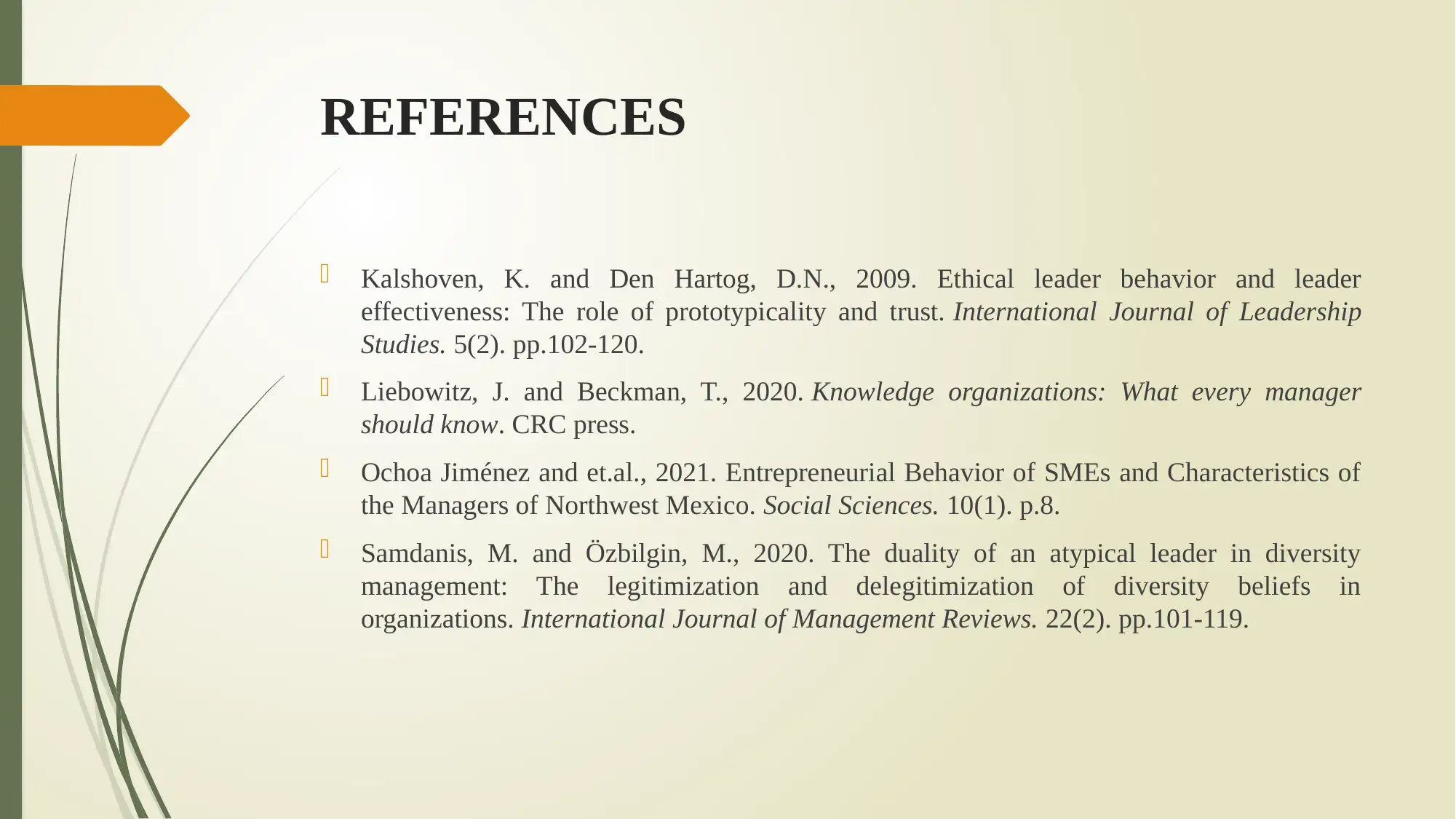
REFERENCES
Kalshoven, K. and Den Hartog, D.N., 2009. Ethical leader behavior and leader
effectiveness: The role of prototypicality and trust. International Journal of Leadership
Studies. 5(2). pp.102-120.
Liebowitz, J. and Beckman, T., 2020. Knowledge organizations: What every manager
should know. CRC press.
Ochoa Jiménez and et.al., 2021. Entrepreneurial Behavior of SMEs and Characteristics of
the Managers of Northwest Mexico. Social Sciences. 10(1). p.8.
Samdanis, M. and Özbilgin, M., 2020. The duality of an atypical leader in diversity
management: The legitimization and delegitimization of diversity beliefs in
organizations. International Journal of Management Reviews. 22(2). pp.101-119.
Kalshoven, K. and Den Hartog, D.N., 2009. Ethical leader behavior and leader
effectiveness: The role of prototypicality and trust. International Journal of Leadership
Studies. 5(2). pp.102-120.
Liebowitz, J. and Beckman, T., 2020. Knowledge organizations: What every manager
should know. CRC press.
Ochoa Jiménez and et.al., 2021. Entrepreneurial Behavior of SMEs and Characteristics of
the Managers of Northwest Mexico. Social Sciences. 10(1). p.8.
Samdanis, M. and Özbilgin, M., 2020. The duality of an atypical leader in diversity
management: The legitimization and delegitimization of diversity beliefs in
organizations. International Journal of Management Reviews. 22(2). pp.101-119.

⊘ This is a preview!⊘
Do you want full access?
Subscribe today to unlock all pages.

Trusted by 1+ million students worldwide
1 out of 12
Related Documents
Your All-in-One AI-Powered Toolkit for Academic Success.
+13062052269
info@desklib.com
Available 24*7 on WhatsApp / Email
![[object Object]](/_next/static/media/star-bottom.7253800d.svg)
Unlock your academic potential
Copyright © 2020–2026 A2Z Services. All Rights Reserved. Developed and managed by ZUCOL.





